Those of us entitled to vote in the general election may soon complete a ballot paper and place it in a box that will be carried away to be counted – unless of course you post it, nominate someone else to do it for you or don’t bother.
But what exactly happens during a general election? Here’s how it works:
Prorogation
This is the formal end to a session of parliament. This year’s happened on 26 March.
Since the 19th century, the monarch has not attended prorogation. Instead, a speech is made on the Queen’s behalf announcing all the major bills passed in the last year.
Dissolution and throwing out the MPs
A parliament is dissolved while the election campaign takes place. But government departments carry on as normal with the same ministers in post until after the vote.
This year parliament was automatically dissolved at 00.01 on Monday 30 March following a new law, which gives more rigid guidance on when to dissolve parliament – 25 working days before a general election. 2015 will be the longest period without a parliament since 1924.
Nevertheless, the prime minister paid a courtesy call to the Queen.
Every seat in the Commons is now vacant. All MPs’ security passes have been cancelled, locking them out of parliamentary buildings and internal systems.
Lords may still access some limited facilities and conventionally may step in to make key decisions while parliament is dissolved.
Party campaigning and TV debates
After dissolution, political parties and candidates have 38 days to appeal to voters.
The public is overwhelmingly in favour of televised debates. But party leaders are under no obligation to take part.
David Cameron has said he will only appear in one TV debate with six other party leaders on Thursday 2 April on ITV.
The BBC is hosting another TV debate between opposition party leaders on Thursday 16 April.
Voter registration deadlines
If you don’t register by 20 April, you will not be able to vote on polling day.
After registering you will be sent a card detailing which polling station you should vote at. If you have a query, you need to contact your local electoral registration office.
If voting by post, you must apply by 5pm on Tuesday 21 April. Someone else can vote on your behalf by proxy if you fit the criteria. You will need to register by 5pm on 28 April to do so, or later by emergency proxy.
Polling day: 7 May
Polling stations will be open 7am to 10pm for those registered to vote in person. Postal voters receive their ballot paper the week before and it needs to be returned by 10pm on election day.
Voters mark an X on the ballot paper for their chosen candidate. If anything else is written it is considered a spoilt vote and is void.
At 10pm the doors of the polling stations close and the ballot boxes are sealed. Following chaos in 2010, people still queuing by 10pm will be able to cast their vote.
Ballot boxes are transported to counting centres by the police. Counting begins as soon as the first boxes arrive and continues through to Friday morning.
Although nearly all UK, Commonwealth and Irish citizens resident in the UK and over the age of 18 have the right to vote, there are some exceptions.
Controversially, prisoners cannot vote, although if they are on remand or not convicted, they can vote if they are registered.
Those found guilty of electoral misconduct in the last five years also cannot vote.
The Queen never votes. As the head of the state she must remain politically neutral and so it would be considered unconstitutional for her to vote in a general election. This also extends to the royal family.
Members of the House of Lords can not vote in general elections.
Results and forming a government
To win a majority of the vote under the current system – known as first past the post (FPTP) – a party needs to secure more than half the seats available. With a parliamentary majority, it is almost certain the new government will have the support it needs to pass legislation.
There are 650 seats in the House of Commons representing the 650 constituencies in the UK: 533 are in England, 59 in Scotland, 40 in Wales, and 18 in Northern Ireland.
Voters choose a candidate in their constituency, rather than voting for a party. The candidate with the largest number of votes wins the seat. In marginal constituencies, the contests are very close.
A party winning a majority of seats usually does not have to win a majority of the overall votes cast.
FPTP is heavily criticised by the Electoral Reform Society for not being proportionally representative enough, especially now in an era of multi-party politics.
Could there be two elections?
A hung parliament is a possible outcome, when no single party has won an overall majority and no party holds more than 50% of seats in the Commons.
When this happens the party with the most seats looks to other parties for support to gain an overall majority, potentially to form a coalition or partnership. It is also possible for a minority coalition to try to form a government.
This means the leader of the largest party does not necessarily become prime minister.
The civil service provides a private location, such as the Cabinet Office, for parties to negotiate away from parliament and the media.
While these negotiations are taking place, the UK retains a caretaker government and an incumbent prime minister. Ministers who lose their seats during the election will remain in government during this period. There are concerns about the lack of clarity during these caretaker periods.
If a coalition or partnership fails, the party that was in government before the election gets the first opportunity to try to form a minority government. If not, the prime minister will resign.
A parliament’s job is to amend and pass new laws. To do this, more than half the MPs need to agree by voting. This is much harder to achieve with a minority government. So a minority government may seek to call a second election to try to strengthen numbers.
However, legislation prevents a government from dissolving parliament (including for an election) at will – two-thirds of the Commons needs to vote for it.
Return of parliament and the state opening
Parliament is due to reconvene on 18 May.
All MPs and lords are required by law to swear an oath of allegiance to the crown. They are not allowed to take their seat in the Commons, speak in debates or vote until the oath is made. Similar conditions prevail in the House of Lords.
The first hurdle for the new government will be to pass a Queen’s speech motion for the state opening. As the speech sets out the government’s new agenda, it is crucial this succeeds. If it fails, the prime minister must resign. This could be used tactically to oust a government.
Another vote required by MPs is to appoint a Speaker. A recent attempt to make it a closed ballot failed. The Speaker’s role is to chair debates in the Commons chamber, keep order and call MPs to speak.
The state opening takes place shortly after the general election and is the formal start of the new parliament, attended by the Queen in person.
During the state opening ceremony, before the Queen’s speech, a short roleplay is performed, starring a man in tights who endures having the Commons’ chamber door slammed shut in his face – acknowledging the House of Commons’ independence from the monarchy.
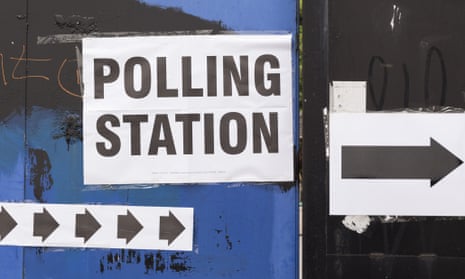
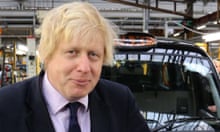

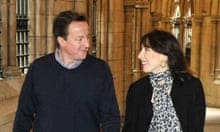
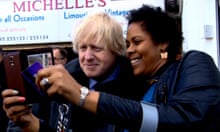

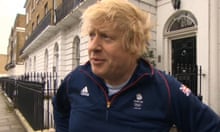
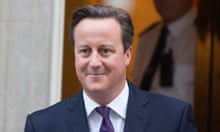

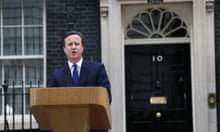
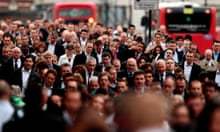
Comments (…)
Sign in or create your Guardian account to join the discussion